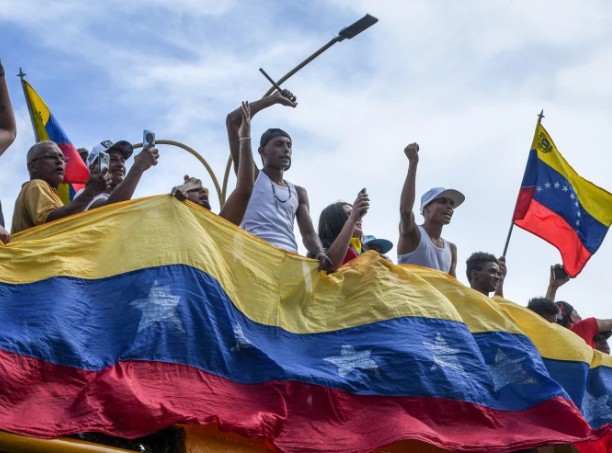U.S. Condemns Maduro Regime as Illegitimate, Signals Tougher Stance on Venezuela

In a forceful rebuke of Nicolás Maduro’s leadership, U.S. White House spokesperson Karoline Leavitt declared the Maduro regime “not the legitimate government of Venezuela,” signaling a renewed hardline approach by the Trump administration toward the embattled South American nation.
Speaking to reporters, Leavitt referred to Maduro as a “dictator” and confirmed that the Venezuelan leader has been indicted a reference to U.S. federal charges filed in 2020 that accused him of drug trafficking and narco-terrorism. “President Trump is prepared to use every element of national power to stop Maduro and support the Venezuelan people,” Leavitt stated.
Her comments follow Venezuela’s UN ambassador publicly rejecting the drug trafficking allegations, calling them “baseless” and “politically motivated.” The diplomatic clash comes amid growing international pressure on Caracas over human rights abuses, suppression of political dissent, and economic collapse.
Background:
Nicolás Maduro has ruled Venezuela since 2013 following the death of Hugo Chávez. His presidency has been marked by widespread accusations of electoral fraud, economic mismanagement, and the violent repression of opposition figures. In 2018, Maduro claimed victory in an election widely condemned by international observers as neither free nor fair.
In response, over 50 countries including the United States and several EU nations recognized opposition leader Juan Guaidó as interim president in 2019. However, Guaidó’s political momentum has since stalled, and Maduro has maintained control of the military and state institutions.
In 2020, the U.S. Department of Justice indicted Maduro and several members of his inner circle on charges of narco terrorism and conspiracy to smuggle cocaine into the United States. While enforcement of these indictments has been largely symbolic, they have strained diplomatic relations further.
Current Developments:
Leavitt’s remarks suggest a sharp escalation in tone and policy, potentially opening the door for expanded sanctions, regional coordination, or covert support to opposition groups.
The comments come at a sensitive time, as Venezuela prepares for parliamentary elections in December, which international observers warn could be manipulated to further entrench Maduro’s power.
The Venezuelan government, in response to Leavitt’s remarks, issued a statement through its UN envoy rejecting U.S. interference and accusing Washington of attempting to destabilize the country under the guise of democracy.
What’s Next:
Analysts believe the Trump administration may soon propose new sanctions or coordinate with Latin American allies to diplomatically isolate Maduro. U.S. intelligence agencies are also reportedly monitoring military and political developments within Venezuela closely.
With tensions rising and the humanitarian crisis worsening, Venezuela remains a geopolitical flashpoint in the Western Hemisphere.
